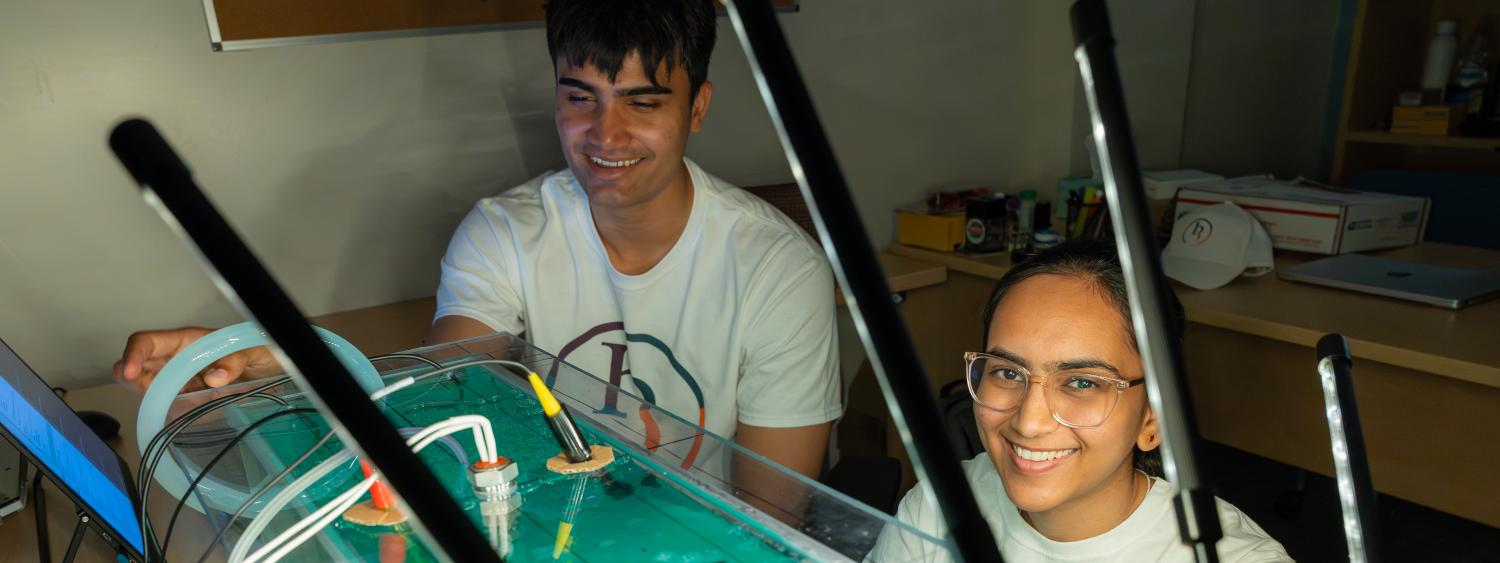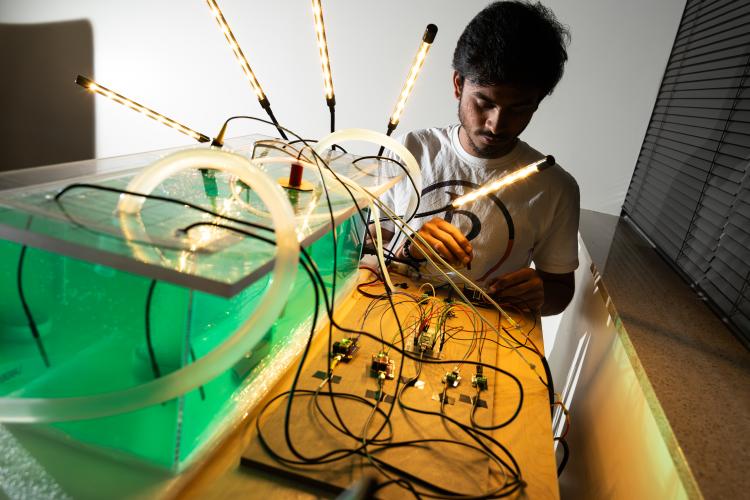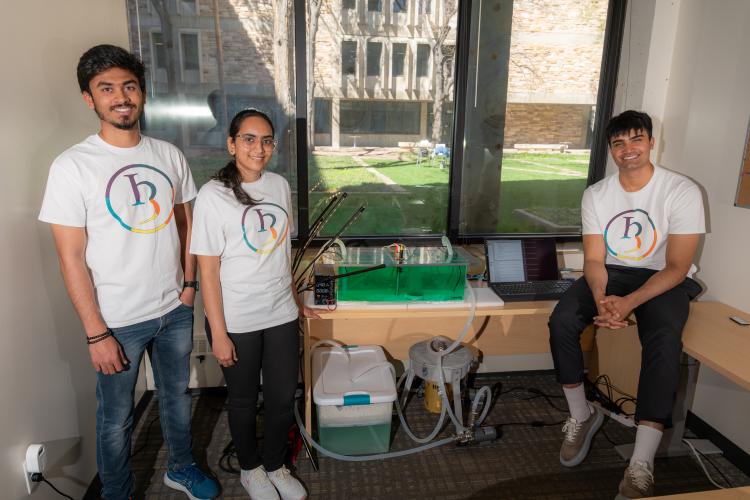
photo: Algohelix members Ibrahim and Pooja Natarajan with automated algae growth system
A team of four computer science graduate students are working with the Yogh Group, an energy technology company, to build a fully automated algae growth system called Algohelix.
Ibrahim, who prefers to be referred to by his last name, said that at scale, Algohelix could provide biofuel, food, air-purification and even T-shirts through the production and processing of these tiny life-forms.
The four master’s students: Ibrahim, Sudarshan Sridhar, Paul Hoffmann and Pooja Natarajan, who prefers to use her full name, will graduate after having worked on the project for an entire academic year.
"It's like growing a bonsai plant inside of a house without human intervention," said capstone team lead Pooja Natarajan.
An intensive problem
Yogh Group CEO Levar Jackson said growing algae is currently an intensive process.
"It's prohibitive to the locales and communities that would benefit from algae-derived products such as food and biofuel," he said.
To solve this problem, the graduate students have worked since October to build a prototype of a system to manage and monitor oxygen, temperature, pH, water density and nutrition for spirulina, a form of algae that is commonly used as a source of plant protein.
"Algae will easily die if there's some kind of contamination in the environment, so we want it to be a fully automated, enclosed system," Ibrahim said.
The team's largest challenges have been in building the bridge between hardware and software. Two members of the team, Hoffmann and Pooja Natarajan, have undergraduate experience with electrical engineering, which helped, but the complexity of automation led to additional difficulties.
Smooth solutions
One of the primary elements of their project has been in trying to build a proportional-integral-derivative (PID) controller for the temperature in the tank.
A PID uses feedback from sensors to determine how far away the conditions in a system are from optimal and adjust, in this case, how powerful the heating element is.
It can be easy to overshoot the correction if the controller is not properly calibrated, which requires thoughtful coding and a deep understanding of how the hardware works.
"We want to control the temperature as precisely as we can," Ibrahim said. "We don't want there to be any fluctuations, but to make it settle to a target smoothly, like when you take a deep breath or do yoga, with no hiccups or unnatural movements. Building that has been a challenge."
A green future
Pooja Natarajan said that working with living, growing organisms like algae is fascinating and that she hopes to continue working on growing other algae for use in biofuels or textiles.
Ibrahim said that Jackson's vision is to grow algae at scale to get all of the benefits of the microorganisms through an integrated system of green energy, food, temperature regulation and more for hotels.
"For now," Ibrahim said, "this is a proof of concept. Everything about it, and the future, excites me."


 Sudarshan Sridhar with the electronics of the system
Sudarshan Sridhar with the electronics of the system Sridhar, Pooja Natarajan and Ibrahim
Sridhar, Pooja Natarajan and Ibrahim